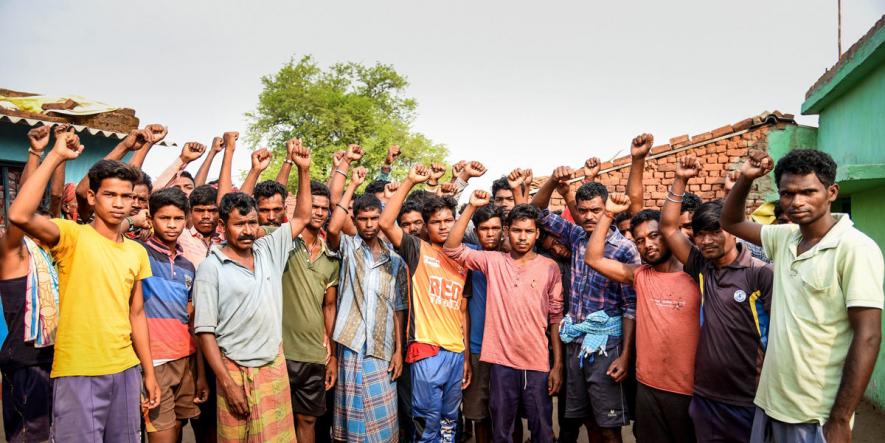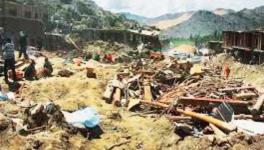Odisha: Adivasis Protest Clearances Given for Stone Mining, Allege Violation of Norms

Representational Image. Image Courtesy: scroll.in
New Delhi: As India revamps its coal mining policy, the Supreme Court is currently debating the permissibility of mining in eco-sensitive areas in a case related to Jharkhand. However, mineral rich states are continuing to bear the brunt of the violation of these norms and lack of clarity over what is permissible and implementation in sensitive zones.
Meanwhile, protests have erupted in low lying areas of Odisha’s Malkangiri region, where tribal anxieties are rising. Villagers in the downhill areas are worried that their land will submerge in the waterlogging that will occur due to the clearances given for stone mining to an Andhra Pradesh firm amidst the ongoing work on the Polavaram dam.
The villagers from Pusuguda and Motu panchayats fear that mining in the area will lead to the hollowing out of the mountain which hundreds of tribal families call home. The villagers are also insecure over the clogging of Godavari river due to the ongoing Polavaram dam project.
The protests are taking place at Amakunda. The tribal groups have also submitted memorandum to the tehsildar at Khairaput and the Malkangiri Collector urging the immediate cancellation of the lease.
Bigger Questions: Mining limits remain unclear
Activists and lawyers feel that the issue at Malkangiri needs to be understood as one which plagues the entire state, pointing out at bigger concerns of legal loopholes in the definition of where mining is permissible, the effects it has on the livelihoods of local population and what’s at stake for the ecology of the area.
Many have alleged that Malakangiri needs to be looked at as an example of how the legal processes could be trampled upon to violate the rights of indigenous populations in a bid to prioritise business interests.
Speaking with NewsClick, Sankar Pani, an environment lawyer based in the area, said: “The process of stone crushing and stone mining has been given a go-ahead by the pollution control board, the permissions were given exactly a year ago, the crushers are being caught out of the highland and the mining is taking place in around 350 metres of settlement of villages. However, the companies are claiming that the activity is taking place a kilometre away, as per an order of the state government back in 2010 that activity needs to take place beyond the 500 meters mark. The companies are also falsely claiming that people are being rehabilitated.”
Currently, the Supreme Court is contemplating issuing directions against mining in any part of the country if it fell within a radius of 50 km of eco-sensitive zones. Speaking with NewsClick an activist from Malkangiri said, “We want the courts to recognise our movements and the fact that we our livelihoods are at stake, as the country moves towards giving incentive to private companies to continue mining, we want our voices to be heard.”
Read More: Odisha Govt Spares Mining Mafia, But Imposes Environment Damages on Truckers
Get the latest reports & analysis with people's perspective on Protests, movements & deep analytical videos, discussions of the current affairs in your Telegram app. Subscribe to NewsClick's Telegram channel & get Real-Time updates on stories, as they get published on our website.
























